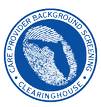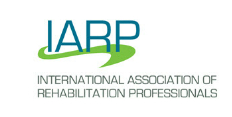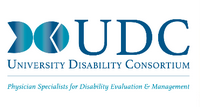FAQ
What is a Life Care Planner?
“The life care plan is a changeable document based upon published standards of practice, comprehensive assessment, data analysis, and research, which provides an organized, concise plan for current and future needs with associated costs for individuals who have experienced catastrophic injury or have chronic health care needs” (International Academy of Life Care Planners, 2003. Established during the 2000 Life Care Planning Summit ). Life care planning is a consistent process for evaluating the patient and disability in order to establish all of the needs dictated by the onset of that disability. Careful consideration is given to the goals, needs and interest of the patient, the needs of the family and the realities of the geographic region in which the patient resides. It takes into consideration the medical records, the patient and family perspective, the treatment team, the clinical practice guidelines, relevant research literature and the carefully established medical, case management and rehabilitation foundation.
Who should get a Life Care Planner?
A life care plan is a tool of case management and can be used in consultation with patients, families, rehabilitation professionals, and catastrophic case managers. The life care plan specifies the long-term medical, psychological, and rehabilitation needs of an individual throughout his/her lifetime. It has application in the non-judicial as well as judicial arena. It is utilized as a preventative plan for disability management outside the judicial setting. Within the judicial and insurance settings it is used to establish an accurate profile of the long term needs, recommendations and costs associated with the onset of the particular disability involved.
How can a life care planner predict what an individual will need in the future?
A life care planner does not attempt to “predict” future events, but bases the plan upon all of the steps outlined in industry best practices. This includes but is not limited to review of the medical records, recommendations from members of the individual’s current treatment team, clinical practice guidelines, and evidence-based research relative to the individual’s disability and level of function. In addition, an extensive review of the medical records and clinical interview allow the planner to appreciate the individual’s medical and rehabilitation history while understanding current needs. Recommendations within the life care plan must have a basis in known medical, case management and rehabilitation outcomes as documented within the research literature.
Do you have to be certified to be a professional life care planner?
Yes, In addition to achieving certification in their primary disciplines, many professionals choose to pursue board certification in life care planning (CLCP) which is granted by the Commission on Health Care Certification. With its foundation in rehabilitation, life care planning attracts board certified professionals from diverse fields of practice, including rehabilitation counseling, rehabilitation nursing, rehabilitation psychology, physiatry, case management, and other areas.
What is Vocational Rehabilitation?
Vocational Rehabilitation (VR) is a federal-state program that helps people who have physical or mental disabilities get or keep a job. Guided Life Care Planning Services is committed to helping people with disabilities find meaningful careers.
What is Case Management?
Case Management is a clinical team approach for clients who have complex medical condition(s). We assess clients health and help them plan and coordinate treatment in collaboration with their health care providers. Case Management reduces costs by coordinating care seamlessly in a more effective manner.
How is Case Management beneficial to clients?
Case Management helps client and their family to:
• Promote access to appropriate and cost-effective care
• Improve health outcomes
• Improve experience of care
Client identification for Case Management Services?
Clients may be referred to Case Management through:
• Health Advocacy activities
• Wellness Coaching, Condition (Disease) Management and/or
• Employee Assistance Program referrals (if applicable)
• Utilization Review activities
• Referral by plan, provider, community agency or self
How are clients discharged from Care/Case Management Services?
A member is discharged from the program when:
• He or she can self-manage their condition effectively
• Personal health goals are met
• The member decides to discontinue services
• He or she no longer meets health plan eligibility criteria











